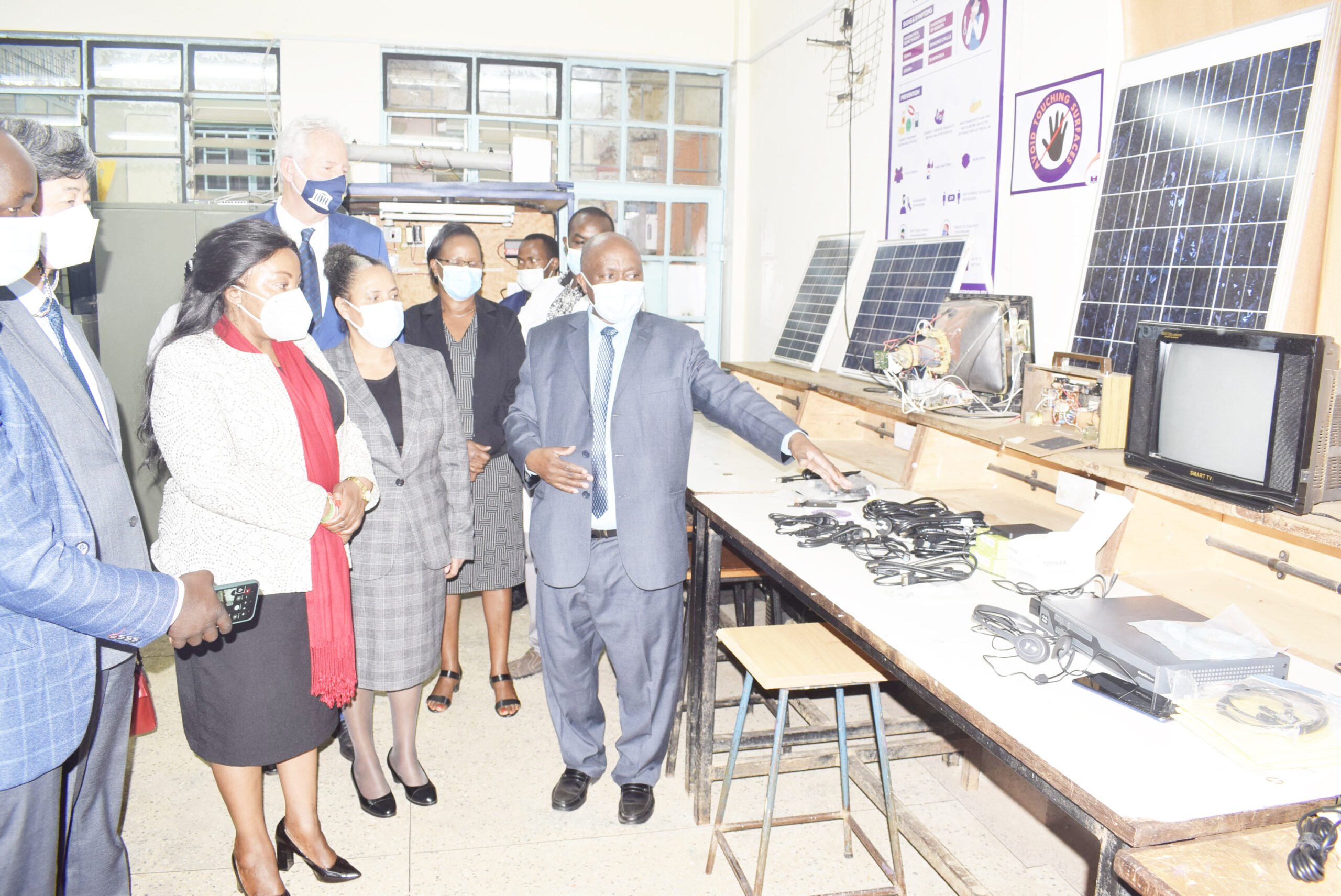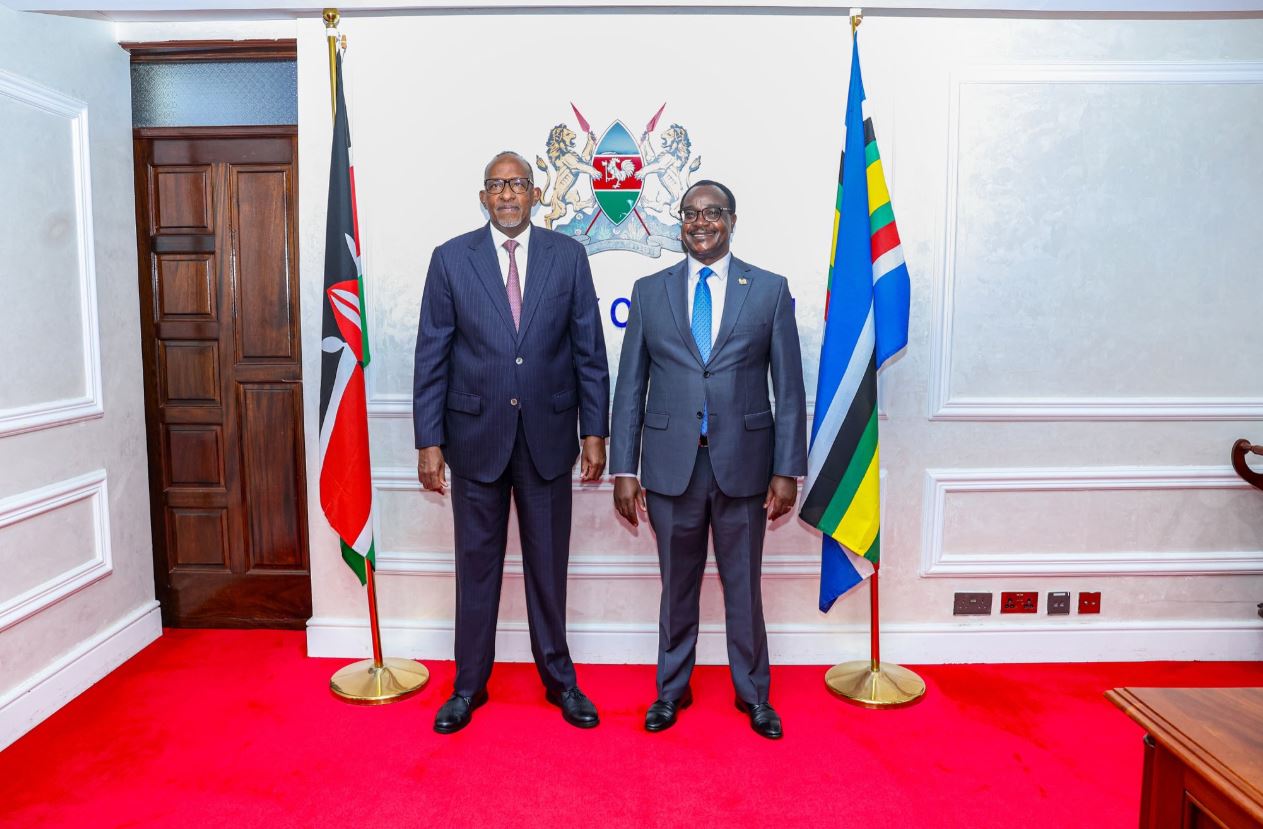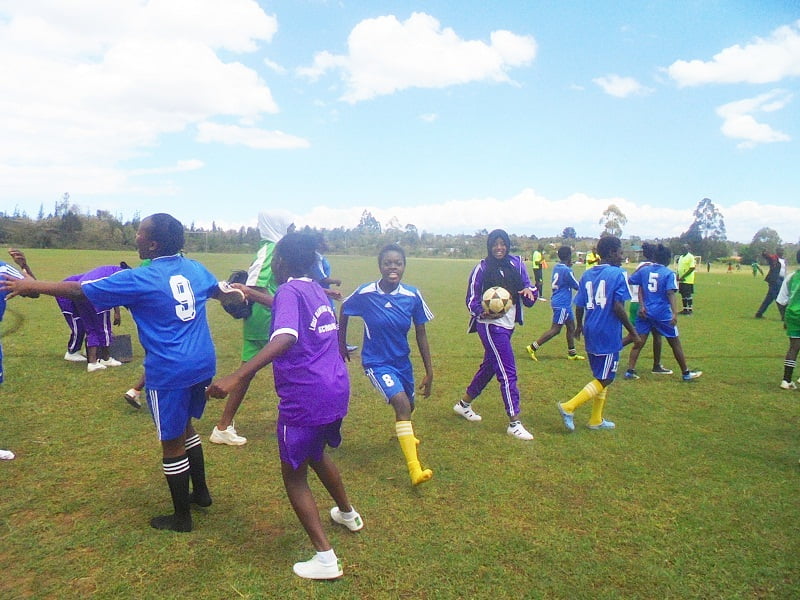By Roy Hezron
The United Nations Educational, Scientific and Cultural Organization (UNESCO) and the Republic of Korea have handed over Information and Communication Technology (ICT) equipment to six Technical and Vocational Education (TVET) institutions under the second phase of Better Education for Africa’s Rise (BEAR II) project.
Speaking during the handing over ceremony held at PC Kinyanjui Technical Training Institute (TTI) on August 10, 2021, the Principal Secretary in State Department for Vocational and Technical Training (VTT) Dr. Margaret Mwakima lauded UNESCO and the Republic of Korea for spearheading the BEAR II project that is geared towards improving the TVET systems in five countries of Eastern Africa including Kenya over 2017-2021 period.
Mwakima noted that the digital transformation of TVET in the country will be undertaken with the involvement of all the right stakeholders ranging from all levels of the economy. She reminded the benefitting institutions that the equipment are meant to help Kenyan youths now and in the future.
The benefitting institutions include; Wote TTI, Kaiboi TTI, Coast Institute of Technology, PC Kinyanjui TTI, Siaya Institute of Science and Technology and Michuki TTI.
The supplied equipments include Computers, interactive boards, projectors and other devices.
“These institutions will be rolling out the implementation of solar PV curricula (Level 6 and Level 3) during the course of the year. The ICT equipment is expected to provide platforms for digital learning hence increase accessibility and improve the attractiveness of TVET Training,” added Dr. Mwakima.
TVET Authority Director-General Dr. Kipkirui Langat said that the Authority has been spearheading the Strategic Plan for TVET 2019-2023, which aims at achieving a modern and labour-market responsive TVET system in the country.
He noted that BEAR II project has achieved a lot since its inception in 2017.Among its achievements are development of the labour market analysis model, development of the Solar PV Curricula (Levels 3 and 6), the capacity building of trainers and the private sector framework for supporting skills development in Kenya produced.
“The TVET Act No. 29 of 2013 places a premium on quality Competency Based Education and Training (CBET) programmes offered in Kenya to ensure a strong link between skills learnt and the needs of the labour market,” said Dr. Langat.
The ambassador for the Republic of Korea, H.E. Yeonghan Choi said that TVET education provides the best opportunity for youth as it also provides labour forces for the private manufacturing industry.
UNESCO Regional Office for Eastern Africa, Prof. Hubert Gijzen stated that effective partnerships are crucial in making the project work.
He added that UNESCO and other partners will continue partnering with the government of Kenya to strengthen TVET systems in the country and improve the perception of TVET amongst the youth.
Other guests who attended the function included Secretary-General Kenya National Commission for UNESCO Dr. Evangeline Njoka and BEAR II Regional Coordinator Mame Mor Diarra Ndiaye among others.
BEAR II is an ongoing project, supported by joint efforts between UNESCO and the Republic of Korea. The project targets improving the relevancy of TVET to the needs of the economy, enhancing the quality of TVET delivered to trainees and improving the perception of TVET among young people and society.
The project specifically aims to enhance TVET system capacity and increase collaboration with the private sector to ensure the employability of student graduates from TVET programmes in the Environment Sector.
The project implementation is at its final stages.






